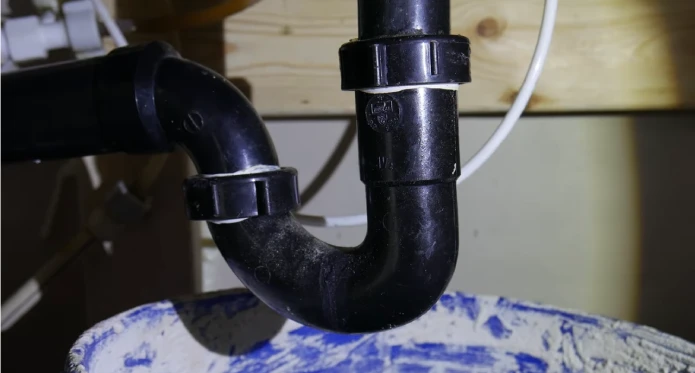Last Updated on July 31, 2023
Dealing with a clogged drain can be frigging, and it often tempts homeowners to reach for commercial drain cleaners. But unfortunately, these products don’t always do the trick. Likewise, you’d like to know what to do if the drain cleaner doesn’t work.
There are many practical and non-toxic alternatives that may do the trick. Baking soda & vinegar offer a natural solution, while plungers or plumbing snakes provide mechanical assistance. Boiling water can also work wonders for breaking up tough blockages. So before reaching for expensive store-bought cleaners, try these simple DIY options first.
Here, we’ll discuss each option for clearing out a clogged drain, so you can find the perfect fit and get moving again.
What to Do If Drain Cleaner Doesn’t Work: 5 Methods
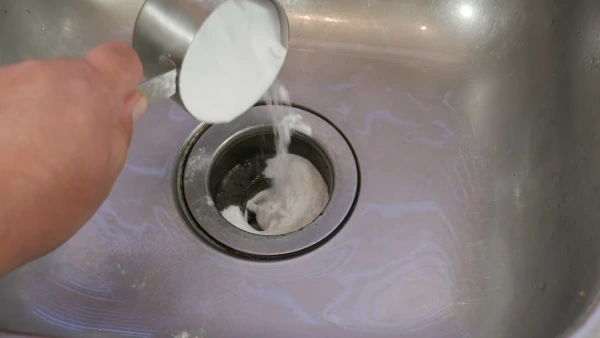
If you’re dealing with a clogged drain, don’t reach for the harsh chemicals right away. There are plenty of other effective methods to try. Here are five that can get your drains flowing again without any nasty toxins.
Method 01: Baking Soda and Vinegar
A baking soda and vinegar combination is a tremendous natural drain cleaner that can help unclog drains all over your house. To use this method, start by pouring half a cup of baking soda down the drain. Once the baking soda has been poured, pour half a cup of white distilled vinegar.
You should immediately see bubbling, which indicates that the reaction has begun. Let the mixture sit for 10 to 15 minutes before flushing it down with hot water. Hot water will help to break up any blockages you have caused by this reaction.
Be sure to use caution when using this method, as it can damage pipes if used too often or not done correctly.
Method 02: Using Boiling Water
Boiling water is another effective method for unclogging drains when store-bought drain cleaners don’t work. Start by boiling 1 to 2 gallons of water on the stovetop or in an electric kettle, depending on how much you need for the situation at hand.
Once boiling, slowly pour it into the affected drain and wait for a few minutes to allow the boiling water to dissolve any blockage caused by debris buildup or grease accumulation.
After you’re done pouring, flush with cold water afterward to clear away any dislodged material further and complete the process. Remember that boiling water should not be used on regular or thin plastic pipes since they may expand or crack due to extreme temperatures.
Method 03: Plunger
Plungers are not just meant for toilets, they are equally useful for unclogging drains all over your house too. Before you begin, make sure that you cover the overflow hole with a wet towel to increase pressure during plunging. This will give better results in clearing out clogged drains faster than plunging without covering up other holes first.
Depending on what type of material comprises your pipes (i.e., metal or plastic), consider using different types of plungers as well: one designed specifically for metal pipes and another one specifically designed for plastic pipes so as not to damage them further while trying to clear out clogs in them.
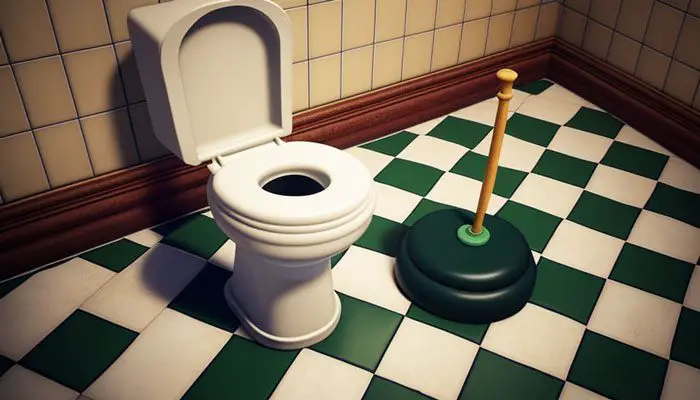
Method 04: Plumbing Snake
To use a plumbing snake, you should carefully insert the tip of the snake into the drain, directing it in an upward motion toward the clogged area. When inserting the snake into the pipe, make sure you are inserting it slowly so as not to cause any damage to your pipes. Once you get close to the clog, continue pushing until you feel resistance.
After reaching the blockage with your plumbing snake, you can begin breaking down blockages by turning the crank clockwise. This will allow for more pressure and leverage on your drain clogs, thus allowing for easier removal of debris and obstruction from your pipes.
It is important to note that depending on how tough or stubborn your clog is, this process may need to be done several times before the full removal of blockages is achieved.
Method 05: Call a Plumber
If a homeowner runs into any issues with their plumbing beyond what they can handle, it is best to call in a professional plumber. Here are some facts about them:
- Professional plumbers are your best bet for tackling plumbing issues, no matter how severe. Their training and expertise ensure that even the most daunting blockages or broken pipes don’t stand a chance.
- You may save money in the long run by hiring a professional plumber. With a professional’s expertise and highly skilled workmanship on your side, any problem is sure to be quickly solved with quality results that stand up over time.
- Professional plumbers also guarantee their work, meaning that if something goes wrong after their services have been rendered, they are liable to cover all costs associated with any additional repairs.
Why Is My Drain Constantly Clogged Despite Using a Drain Cleaner?
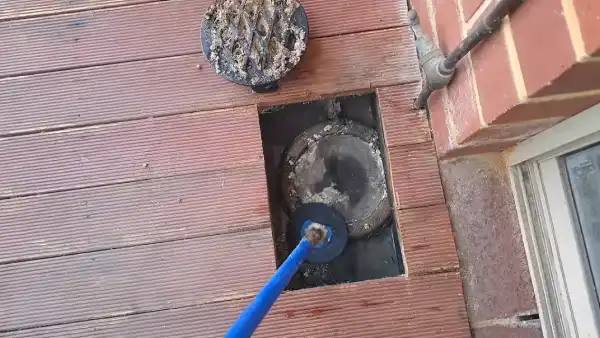
Dirt, skin flakes, and especially hair bind to soap scum on the walls of drain pipes, resulting in a constantly clogged drain. This creates a buildup that can be difficult to remove, even with a drain cleaner.
It’s possible that the drain cleaner you’re using isn’t strong enough for the clog, or it’s not formulated to break down the materials causing the issue. And plumbing issues such as tree roots or broken pipes can also contribute to an inability to clear a clog with a regular drain cleaning.
Here are some effective alternatives to drain cleaners for stubborn clogs:
Hair Drain Cleaner Tool
This handy tool is designed to remove clogs caused by hair, making it the perfect solution for keeping your drains clean and clear. It has a small head and an extra-long handle that allows you to access and remove hair from deep in your pipes easily. The flexible design of the brush allows it to fit into tight spaces and makes the removal of stubborn clogs easier than ever before.
Flexible Drain Brush
This innovative brush is designed specifically to clean out drains. It has a flexible head that can be easily maneuvered in order to reach behind corners, bends, and other hard-to-reach areas of your drain pipes. The bristles are tough enough to break up clogs without damaging the pipes while still being gentle enough not to scratch or damage any surfaces.
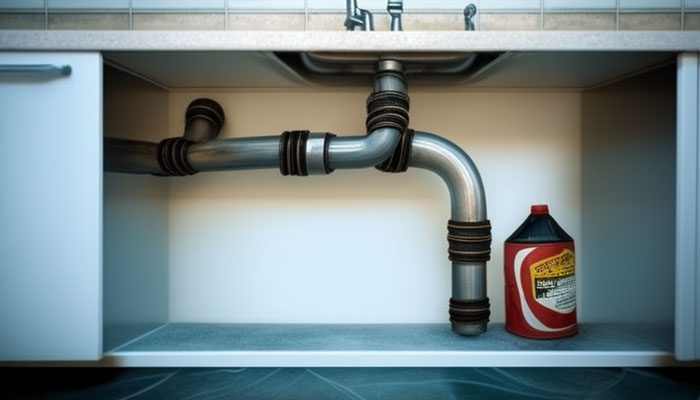
Electric Drain Auger
This powerful device is the perfect solution for cleaning out tough clogs from your drain lines. It works by sending a rotating cable down into the pipe, breaking up any blockages or debris buildup. You can also use it to clear tree roots from sewer lines or even easily remove rocks from septic tanks.
Plumbing Snake Drain Clog Remover
This unique product is designed specifically for removing stubborn clogs from plumbing systems quickly and effectively. It features a long, flexible snake-like shape allowing it to navigate through tight spaces and easily maneuver around obstacles.
The durable construction ensures that this tool will last for years of reliable service without needing frequent maintenance or repairs.
What Is the Most Common Cause of Blocked Drains?
Blockages in drains are most commonly caused by fats, oils, and grease (FOG). Fats, oils, and grease build up over time in pipes, forming a sticky coating on their walls. This coating traps food particles and debris that could otherwise pass through freely, creating blockages and back-ups.
Other causes of blocked drains include soap scum sticking to pipe walls, hair accumulation, mineral buildup from hard water, flushing trash down toilets, flushing wipes down toilets, and accidental foreign objects being flushed down toilets or sinks.
What Happens If You Leave a Blocked Drain?
Leaving a blocked drain unattended can lead to more than just inconvenience. It can be hazardous for your home. When there’s a backup in your plumbing system, increased pressure builds up inside your pipes which can result in them cracking or bursting. This can lead to flooding damage in your home and water contamination from sewage overflow.
The sooner you address any blockages in your plumbing system by calling a professional plumber or using safe remedies such as baking soda or vinegar solutions.
What Are the Signs of a Clogged Drain?
The most common signs of a clogged drain are slow draining, an unpleasant odor from the sink or shower, and gurgling noises from the pipes. And standing water in the sink or tub when running water and strange bubbling sounds in the pipes can indicate a clogged drain. If left unaddressed, these symptoms can worsen, leading to overflowing and flooding in your home.
How Can I Prevent My Drains from Becoming Clogged?
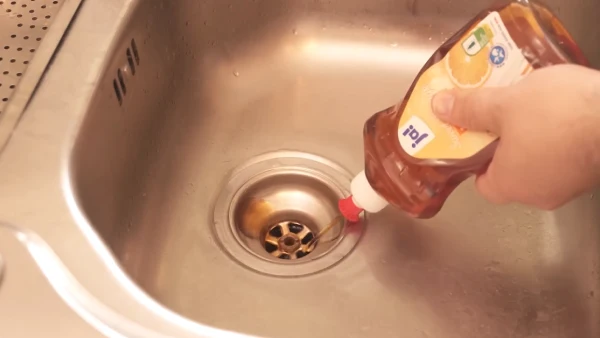
One of the best ways to prevent your drains from becoming clogged is to ensure that only appropriate items are placed down them. This means avoiding flushing anything other than toilet paper down toilets and ensuring only to wash down food particles and appropriate items down sinks.
And occasionally pouring boiling water down drains will help to keep them clear by melting away any accumulated fat or grease that may be building up inside your pipes. Lastly, regularly cleaning out traps and strainers will help prevent large objects, such as hair and food scraps, from blocking drains.
Unclog Your Drains with DIY Solutions
If your drains are still clogged after trying various solutions, such as chemical drain cleaners, plungers, or plumbing snakes, then it may be time to call a professional plumber. Even though this will cost you money in the short term, it could save you from costly repairs in the long run if the clog turns out to be caused by something more severe than a simple blockage.
And using natural solutions such as baking soda and vinegar is always a wise option since they’re much safer for your family and the environment than chemical solutions. There are plenty of ways you can try before calling in a plumber, which has already been discussed above. Follow one of them and remain calm and safe.

